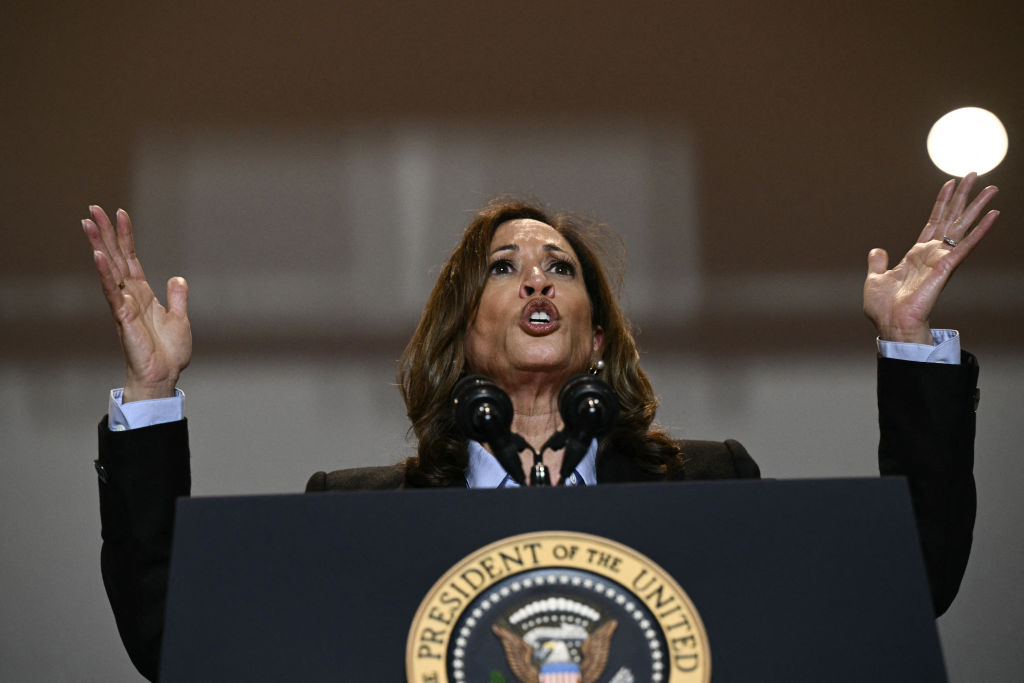Good employment figures are welcome news, regardless of whom they help or hurt politically. In August, the US economy added 142,000 Americans to the ranks of the employed — good news whether you’re a Republican, Democrat or that one guy who created his own country in the California desert.
Even if hiring fell short of the projected 165,000 new jobs figure, it was much better than the dismal 89,000 jobs added in July, a figure which was itself revised down from 114,000. Unemployment is down to 4.2% and wages are up 3.8% over the past year, giving workers relief from elevated prices. Now the Federal Reserve will move to cut interest rates, making it likely that America will escape inflation without plunging into a recession, thus sticking that mythical “soft landing” we’ve been hearing about for three years.
But with the election only weeks away, it is impossible to look at the recent employment figures without treating them as the latest twist in America’s national obsession with trying to handicap November’s results. Today’s jobs numbers appear to help Kamala Harris in particular. But that does not mean that she and President Joe Biden have necessarily done a stellar job as economic stewards. For one thing, it is basic macroeconomics that flooding the economy with trillions of dollars would contribute to inflation. At the same time, inflation was a global problem in the aftermath of the Covid-19 pandemic, which the US handled better than most.
What is surprising, though, is that an astonishingly low 23% of Americans hold a favourable view of the economy. Economists are puzzled over the disconnect between statistics and sentiment, a discrepancy some have called a “vibecession”. It is there, on the uncertain terrain of vibes, that Harris is weakest. A more adept opponent than Donald Trump would be doing all they could to capitalise on that disconnect, but the Republican candidate is struggling to fully articulate why Americans are unsatisfied. He had a better sense of it in 2016, for sure.
Last year, Wall Street Journal columnist Greg Ip used the term “referred pain” to explain why the vibes were sour even when the numbers were good. He surmised that people were using the economy as a proxy for other concerns. “Just as one part of your body can hurt because of injury to another, pessimism about the economy may reflect dissatisfaction with the country as a whole,” Ip wrote. We emerged from the pandemic into one war (Ukraine) followed swiftly by another (Gaza). The social order seems flimsy, if not frayed. Everything is on edge. That may explain why more than 60% of Americans think the country is going in the wrong direction. We are economic creatures, but that doesn’t mean we can shut out the part of the world which can’t be reduced to prices and valuations.
Another line of critique against Harris is that she represents more of the same, a continuation of the Biden administration, as well as those of Barack Obama and Bill Clinton before. The party has generally embraced a neoliberal consensus, which is why dozens of the nation’s top corporate executives have endorsed the Democratic pick. Harris’s 28% capital gains tax rate, 12 points below Biden’s proposed top rate, will no doubt please them.
Too much of Trump’s rhetoric is influenced by Elon Musk and the online Right. He has tried to make “Comrade Kamala” into a socialist bogeyman who is going to make the population eat cricket burgers and drive cars fuelled by soybean oil. In fact, this is exactly the opposite of the argument he could — and should — be making.
Trump’s most effective attack in 2016 was arguably to paint Hillary Clinton as beholden to billionaire donors. Those same donors are now fully behind Harris, but Trump’s prosecution of the economic case against her has been incoherent and ineffective.
Inflation may be cooling, but something deeper is amiss. Trump once seemed like he could be an iconoclastic economic populist with appeal not only to centrists but also to outright liberals fed up with relentless globalisation and the low morals of high finance. Yet, once in office, he turned out to be just another Republican. Which is why America looks increasingly likely to elect a Democrat.










Join the discussion
Join like minded readers that support our journalism by becoming a paid subscriber
To join the discussion in the comments, become a paid subscriber.
Join like minded readers that support our journalism, read unlimited articles and enjoy other subscriber-only benefits.
Subscribe